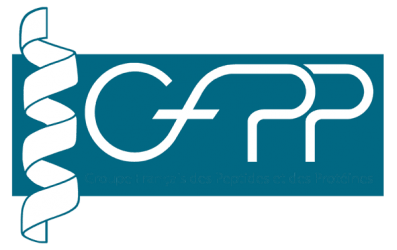Collagen mimetic peptides containing the integrin binding motif GFOGER were generated by solid-phase peptide synthesis. The peptide sequences also contained lipophilic moieties for improved membrane permeability and different collagen-inducing tripeptides. The three-dimensional parallel-strand helical structure of DGD-GG-GFOGER-GG-TTK-palmitate was obtained by nuclear magnetic resonance spectroscopy and circular dichroism.
The current wound-healing collagen mimetic peptides (CMPs) have limitations such as poor membrane permeability and protease susceptibility. Herein, the solid-phase peptide synthesis of CMPs containing the integrin binding motif GFOGER is reported. The peptide sequences also consist of lipophilic moieties (adamantane and palmitic acid) for improved membrane permeability and different collagen-inducing tripeptides, namely, Thr-Thr-Lys (TTK), Gly-His-Lys (GHK), Gln-Pro-Arg (QPR), and Glu-Glu-Met (EEM). The synthesized peptides were successfully characterized and purified using liquid chromatography-mass spectrometry and preparative high-performance liquid chromatography techniques, respectively. The palmitic acid moiety increased the hydrophobic nature of the peptides, and they were retained longer on the stationary material of the reverse phase C-18 column. The three-dimensional parallel-strand helical structure of peptide DGD-GG-GFOGER-GG-TTK-palmitate was obtained using nuclear magnetic resonance spectroscopy and circular dichroism. The synthesized peptides have the desired helical structure, which can promote integrin binding.


